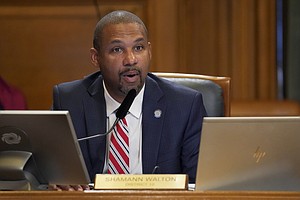2/28/2024

San Francisco this week formally apologized to its Black residents and their descendants for decades of systemic and structural discrimination, targeted acts of violence and atrocities.
On Tuesday, during the last week of Black History Month, the 11 members of the city’s Board of Supervisors unanimously voted to pass a resolution that includes a formal apology and commits “to the rectification and redress of past policies and misdeeds,” the resolution states.
Supervisor Shamann Walton, who introduced the resolution last fall as one of more than 100 recommendations from the city’s African American Reparations Advisory Committee, described it as “historic” and “long overdue,” according to a news release.
“We still have a long way to go, however this is a first step to commit to the restoration of the ways racism has caused insult to Black humanity including San Francisco making a commitment to substantial ongoing, systemic, and programmatic investments in Black communities to address historical and present harms,” Walton said.
Though historic in nature, the apology isn’t a first for San Francisco.
In 2022, coinciding with the Lunar New Year, the Board of Supervisors passed a resolution formally apologizing to its Chinese residents for discriminatory actions taken during the city’s storied history.
San Francisco is the second major US city to issue an apology, after Boston passed a similar edict in 2022, apologizing “for the role played by the City of Boston in the trans-Atlantic slave trade and the ongoing detrimental impacts experienced by the Black people of Boston,” according to the resolution and a statement from the city. Additionally, nine states have issued apologies for their history of discrimination and violence, the San Francisco resolution notes.
The Board of Supervisors last year accepted a recommendation of a one-time payment of $5 million to eligible Black residents as part of a draft plan from the reparations committee, CNN previously reported.
At the time, California Gov. Gavin Newsom called the recommendations “a milestone in our bipartisan effort to advance justice and promote healing.”
“An apology on public record is a vital part of corrective action and a milestone for healing for our community,” Tinisch Hollins, former vice-chair of the African American Reparations Advisory Committee, said in Tuesday’s news release.
“The San Francisco Reparations Plan outlines more than 100 additional ways for the City of San Francisco to demonstrate the sincerity of that apology by proactively creating pathways to equity for Black San Franciscans,” she said. “It should be used as a blueprint for the next century.”
